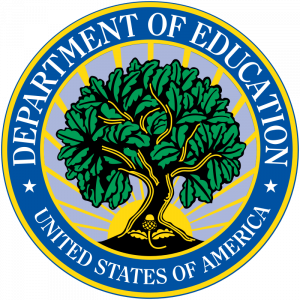
It's back to school time, so we thought it only fitting to take a look at the Department of Education (ED) to get a sense of what is on their "syllabus" for the next government fiscal year. The stated mission of the Department is to "promote student achievement and preparation for global competitiveness by fostering educational excellence and ensuring equal access." It is a fairly new cabinet-level agency established in 1980. In addition to providing federal support and coordination to the states, the agency is responsible for administering loans and grants for higher education.
A current focus for the Department is modernization. A recent GAO report looked at the ten most critical updates needed in government. ED had one system on the list that was relying on COBOL programming language, a language that is not used or taught anymore, and those who do know it are retiring from the workforce.
Beyond this obvious and critical modernization need, the Department is looking at many other modernization initiatives, including updating the federal student loan process to streamline and simplify applications. Similarly, ED is actively investigating ways that modernized loan systems can reduce and even stop fraud involved in loan applications.
For people working with the Department of Education, there are several conferences and events in the coming months that address the education sector directly as well as guide modernization more generally.
- Public Sector Innovation Summit (October 2, 2019; Arlington, VA) - This event brings together IT leaders from government and industry to discuss best practices, opportunities, and key trends in the government technology space. Additional focus areas include efficiently moving to the cloud, transforming IT to modernize government, innovating in a risk-averse culture, and much more.
- EDUCAUSE Annual Conference (October 14-17, 2019; Chicago, IL) - Focused on the higher ed IT market, professionals and technology providers from around the world will come together to share ideas, grow professionally, and discover solutions to today's challenges. Topics include managing and reducing information technology risk, navigating change, transforming the student experience, and creating a culture of data-informed decision-making.
- P3 Higher Education Summit (October 24-25, 2019; San Diego, CA) -- Public-private partnerships (P3s) are delivering essential infrastructure on campuses across the country. University representatives and industry leaders will discuss the latest modes of campus infrastructure delivery. The agenda will focus on P3 education, financing, procurement, policy, and networking.
- Blockchain Expo North America (November 13-14; Santa Clara, CA) - This event will include a series of expert keynotes, interactive panel discussions and solution-based case studies exploring the key industries that are set to be disrupted the most by this new technology, including financial services, government, and education.
Let us know what other events could benefit people working at the federal level of education. Share your thoughts in the comments.




